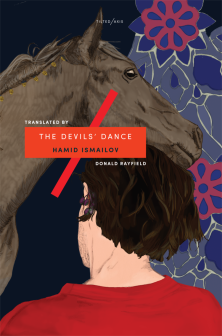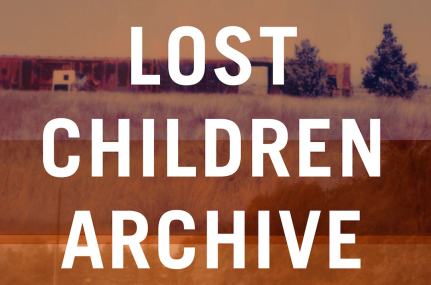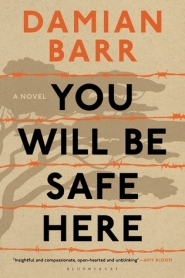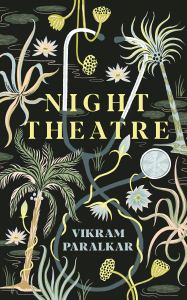 It’s readathon time once more, and I have cheated a bit and started reading five hours early. My goal for this readathon is to read for at least 12 hours, and spend as much time as possible reading outside. Luckily it’s a gorgeous day, and I’ve gathered a reading pile much too high as always. I’ve quite forgotten to buy snacks, but Harry Potter and the Half-Blood Prince on audio can keep me company as I walk to the store later. I also have two furry friends to cheer me on!
It’s readathon time once more, and I have cheated a bit and started reading five hours early. My goal for this readathon is to read for at least 12 hours, and spend as much time as possible reading outside. Luckily it’s a gorgeous day, and I’ve gathered a reading pile much too high as always. I’ve quite forgotten to buy snacks, but Harry Potter and the Half-Blood Prince on audio can keep me company as I walk to the store later. I also have two furry friends to cheer me on!
Hour 1 and 2: I’ve started reading an old favorite, which is always a bit scary. The book is Visitation by German author Jenny Erpenbeck, and though it’s a short read it needs to be read thoroughly in order to see all the beautiful details in the novel. It’s been nine years since I read it last, and so far it seems my tasted haven’t changed that much since then. Visitation is about a house situated in East Germany at the Brandenburg lake and we follow its history from the 19th century on. We get glimpses of the daily lives of its inhabitants, seemly serene and normal lives interrupted by politics, invasion and more ordinary struggles. Ownership of the house changes hands with irregular intervals, but the one constant is the gardener, surveying all, toiling away, but never speaking, just observing history in this place. It seems I don’t have to worry about losing this favorite by re-reading it, because it is just as powerful and gorgeous as I remember it.
Hour 3 and 4: Not yet finished with Visitation, but taking a break with something a bit less demanding. I decided to re-watch M*A*S*H for the umpteenth time a short while ago and also realized I have a book about North-Korea that I’ve been meaning to read for the last two years, without actually getting to it. It’s a book by Norwegian author, Morten Traavik, who was a cultural attaché in North-Korea for seven years. The title of the book is Forræderens Guide til Nord-Korea which translated means The Traitor’s Guide to North-Korea. Clearly he is not a cultural attaché there anymore. He gives us an insight into the closed regime, but is also candid as to what they don’t show foreigners – meaning that he is aware of the fact that what they show him is what they want to show off, though he does get a view of the country outside Pyongyang at least. Previous chapters have included a guide to both food (dog meat as an aphrodisiac – yikes!) and sex (almost exclusively self-help if you’re a tourist) in North-Korea, but now we’re on to the backstory with a short history of the country from Juche 1 (1912) until the 90s.
Hour 5 and 6: Erpenbeck contrasts ordinary life, gardening, swimming, washing, with the horrors of The Second World War, and she does it in a matter-of-fact tone from one paragraph to the next and from one page to the next. From summers traveling and idyllic summers spent by the Brandenburg lake you get the sale of the house in order to secure finances for passage out of Germany, and then to this:
Two months after Arthur and Hermine get into the gas truck in Kulmhof outside of Lodz, after Arthur’s eyes pop out of their sockets as he asphyxiates, and Hermine in her death throes defecates on the feet of a woman she’s never seen before, all their assets, together with the assets remaining in Germany that belonged to their son, Ludwig, who has emigrated, are seized, all the frozen bank accounts dissolved and their household goods auctioned off.
It’s such a chilling paragraph because it’s brutally honest and straightforward, and contrasted with the quiet and ordinary life of the couple and their family before the war. Possession of the house is now in the hands of a German architect, without (much) Jewish ancestry, and his wife. They manage to cling on to the house after the war, by making friends with the Soviets, but that doesn’t last long. What this novel shows is both how fleeting our existence in the world is, whilst not at any point suggesting that our lives are any less important or meaningful because of it. This novel isn’t easy to read, especially the chapter from a child hiding in the dark, completely abandoned, awaiting her fate. So I have started something hopefully lighter and more fun, The Explorer by Katherine Rundell. It does start with a plane crash, though, but as it’s written for kids or young adults (not sure which) and meant to be an adventure, I’m guessing it should fit in the fun read category.
Hour 7, 8 and 9: Have read about 70 pages of The Explorer, which is an adventure story about four kids stuck in the Amazon after a plane crash. Not sure how the story is going to progress, but so far we follow the kids as they try to find food, shelter and water, and try to figure out how to avoid snakes and piranhas. I’m guessing they will leave their campsite and try to head for a city at some point, and so far it’s an easy and engaging read. I’m also through part of the Soviet occupation in Visitation, which is a savage and slightly repulsive affair, written just as powerfully as the parts from the war. I just made dinner whilst listening to Harry Potter and the Half-Blood Prince, and Harry’s just discovered the potions book previously belonging to Snape (spoiler – though at this point doesn’t everyone know?) and won himself a bottle of Felix Felicis. I’ve now got to the part where we finally learn more about Voldemort’s past, but I think I’ll save it for a bit later when I start to get tired. First I might try to actually finish a book (Visitation) and maybe continue with my North-Korea book as well as The Explorers. Happy reading everyone!
Hour 10 and 11: Finished Visitation. I assume I was wrong about the novel starting in the 19th century, because the gardener seems to have been the same person throughout the book. I thought he was a constant figure – a role – that there were different men who assumed the role, possibly through inheritance. Now I think he was just one man, which means the novel must have started during the 1920s og 1930s. There are numerous references to earlier chapters and characters throughout the novel, and it’s not always easy to understand the chronology or remember who’s connected to who. Could well be read several times, always learning something new I would think. An excellent read, this novel about a house, and the lucky and/or unlucky people who got to call it home for a brief period.
Hour 12, 13 and 14: Have learned quite a bit about North-Korea these past hours, but now I’m too tired to tell you about it. Will update after some sleep.
Hour 15: I’m back in the game after seven hours under the duvet. I’ve spent the first reading hour this morning finishing my North-Korea book. I think the most surprising part of it were the descriptions of North-Korean society in the 70s, which seemed quite relaxed and not at all as fear-based as I assumed. I’m guessing that might not have been the case for the population as a whole, this is just one window into a small part of North-Korea. But a stable economy (well, based on foreign investments on false premises, so stable might be pushing it..) and good services to the country’s inhabitants, together with indoctrination and little to no knowledge about the wider world, might be a good mix for avoiding civil unrest. Nation wide famine and the death of the great leader was, on the other hand, not a great combination for securing a happy populace. Though it did fit with the narrative given, where the death of the leader would lead to a catastrophe of biblical proportions. I’ve also learned a bit about the differences between the three Kims, just as rumors of the death of the third Kim is circulating in the media. If true, it will be interesting to see which changes a new leader might bring about, but if this book is to be trusted than the leadership is a collective behind the Kims, which might mean less room for change even with a new leader.
Hour 16 and 17: Forgot to log the rest of the readathon, but I did get distracted by other tasks after hour 17. I spent the last few hours reading The Explorer, though I didn’t finish it.
This was as much fun as it always is, and I hope it’s given me a boost to read more in the coming weeks.






